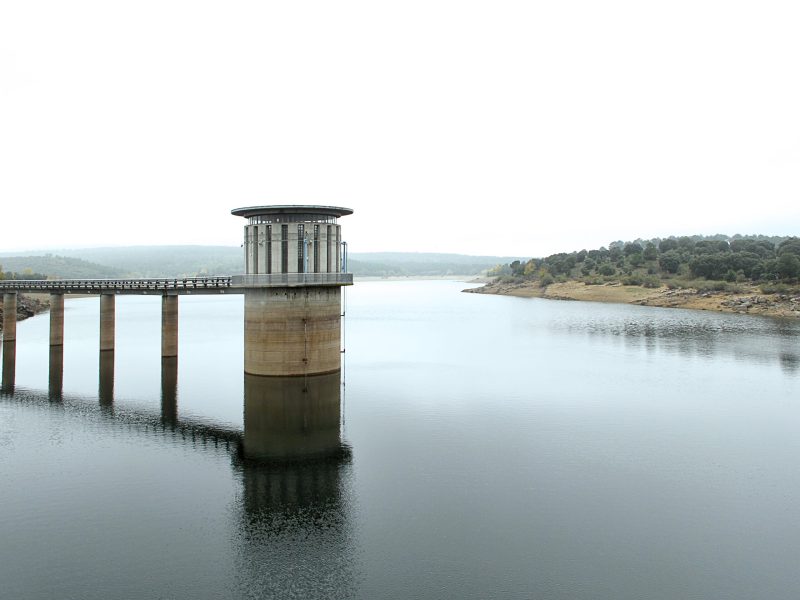

This postgraduate course is for you if you want to acquire knowledge about water resources management, guarantee the quality of drinking water, manage a water treatment plant or design a water supply network.
The Online Postgraduate in Drinking Water Supply is part of the itinerary of the Online Master in Water Technology and Management, which allows a path of professional development: you start a postgraduate course with the possibility of extending it to a master's degree.
To design the potabilization processes according to the quality of the water of origin and the regulations applicable to water for human consumption.
Understand strategies for operation, maintenance and rehabilitation of water supply infrastructures.
Characterize and dimension the use of different water resources.
To know the key aspects and tools for the design and sizing of distribution network elements.
To know and analyze the latest technological innovations and advanced management systems for drinking water.
You will efficiently and sustainably manage water resources.
You will analyze and apply the legislation corresponding to the distribution of water intended for human consumption.
You will apply the most innovative technologies to unitary water supply processes and bring innovative capabilities.
You will understand the strategies for operation, maintenance and rehabilitation of drinking water collection, treatment and distribution infrastructures.
The Online Postgraduate in Drinking Water Supply is part of track 2 of the Online Master's Degree in Water Technology and Management.. It includes the modules:
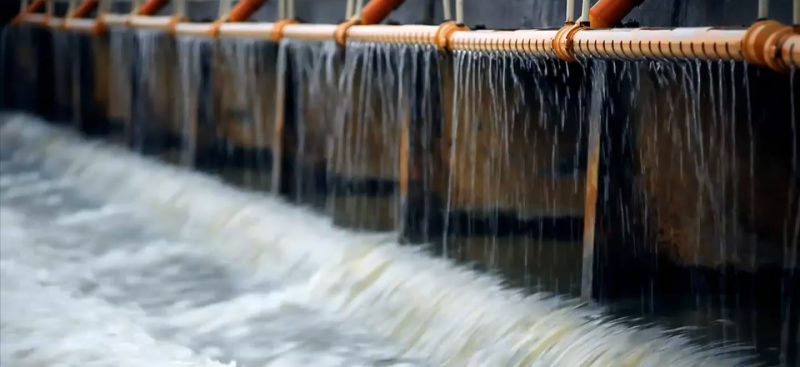
Water resources.
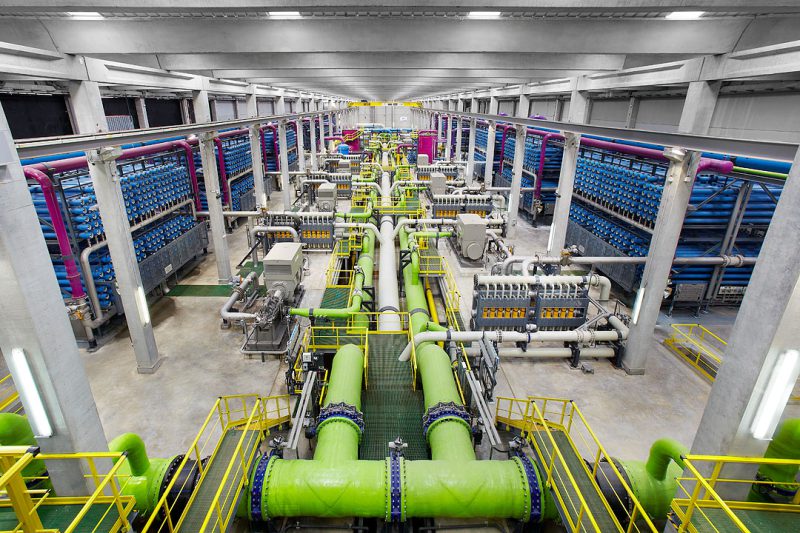
Drinking water production.
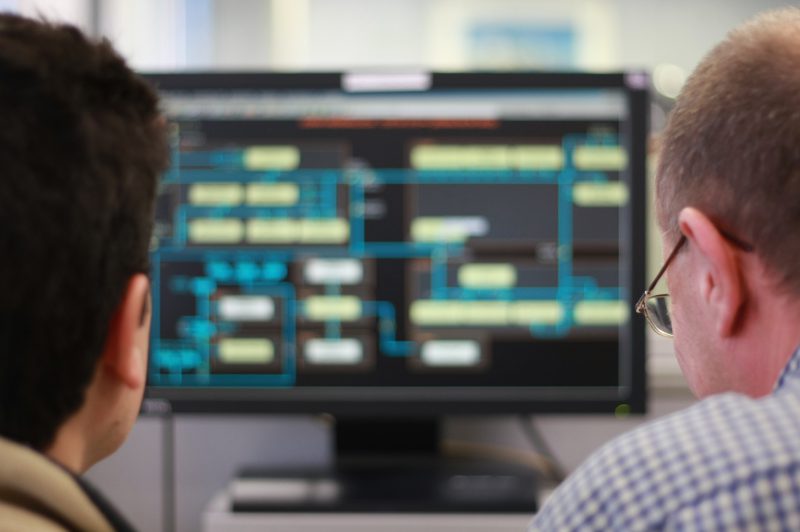
Drinking water distribution networks.
As it is part of the itinerary, it allows a path of professional development, since it starts a postgraduate course with the possibility of extending it to a master's degree.
We develop the water cycle, with special attention to the urban water cycle and its management. All the stages that make up this cycle and the different characteristics of both water and the infrastructures involved are detailed. It also provides the most appropriate management tools for each of these stages. Always, under the holistic vision of the entire water cycle and, therefore, of the interrelationships between each of the stages and their implication in a sustainable management of the resource within the cycle itself.
This credit introduces students to the water resources available and identifies the characteristics of each one according to its origin. Then, the different methods of exploitation of each one of them are specified, ensuring sustainability by taking care of both the quality and quantity of these resources. Alternative resources are also presented, with their advantages and disadvantages, in order to include them in the overall management of water resources.
Presentation of the regulatory framework by which water resources are legislated. The characteristics of the regulation that guarantee the rational and sustainable use of water, as well as its accessibility for all, will be discussed. The tools for the design of management models aimed at achieving these objectives will also be presented.
The contents applied in the integrated management of water resources, to detect all those agents and actors involved, the interrelationships between them and their consequences in the hydrological planning. The criteria for the participation of all these agents will be taken into account to ensure a basin management that responds to all the needs or demands detected.
This credit reviews the key concepts to understand the principles of nature-based solutions (NBS) and green infrastructures (GI), as well as the global strategies adopted at the international level and the current regulations at the European level that enhance their implementation. The main nature-based solutions in the water cycle, the benefits they bring and examples of their application are reviewed. Finally, you will learn the key aspects to take into account for the implementation or management of this type of infrastructure.
All physical, chemical and microbiological parameters that can influence water quality are presented. The most common contaminants, possible diseases and the sampling plan necessary to guarantee the quality of water for human consumption according to current legislation.
A complete knowledge of groundwater management and groundwater abstraction within the existing hydrogeological context. It analyzes the use of groundwater by means of vertical wells, from the initial phase of the location of the catchment, through the constructive design, and finally the development of one of the most common techniques for the protection of this type of catchments: the establishment of perimeters.
All the knowledge necessary to size a drinking water treatment plant, from the design of the catchment to the functional definition of all the treatment stages to which the water will be subjected in order to meet the desired quality parameters.
In this credit, membrane treatments, their purpose and operation are explained. The different types of membranes, their classification, their layout scheme and design parameters are presented in order to be able to simulate a treatment system using software.
To know how a drinking water treatment plant operates through the different practices for each unitary process, the parameters that need to be controlled in the process and how these operations affect water quality at the end of them. Likewise, different anomalous situations that can be found in the usual operation are identified and developed, and guidelines are defined to be able to continue with the operation in these cases.
A method to facilitate decision making in water treatment plant management. Criteria for personnel management, process optimization, automation requirements, as well as activity control parameters, management systems and cost elimination are presented.
It focuses on aquifers and the basics of hydrological and hydrogeological management and planning, in order to present the joint, coordinated and integrated use of surface and groundwater resources, both at the public and private operator level.
Methodologies and techniques for the design of a supply network according to the conditions to which it will be exposed and according to the existing operation forecast, with an evaluation of the effects that both extensions and modifications will entail. The design and service regulations governing drinking water distribution networks will be presented. Finally, the necessary knowledge on which materials to use in these networks will be provided.
The physical parameters that describe the hydraulic behavior of supply networks are explained and the necessary knowledge to understand the operation of the main components of these networks is provided. Next, the minimum mathematical tools for network sizing are provided, and the most commonly used software for the design of new elements is also explained.
Knowledge will be acquired to achieve the best provision, operation and maintenance of the supply service and the relationship with the subscriber. The tools to identify and optimize the elements that determine the proper functioning of the network are also presented, and energy and hydraulic efficiency and energy savings in a drinking water distribution network are studied.
In this credit the knowledge related to asset management in a distribution network is presented, and the student is trained to discriminate the information involved in the decision making involved in this management. Concepts on the reliability of infrastructures, useful in the evaluation of their deterioration, are explained. Next, tools will be provided to enable students to design an optimal strategy for the maintenance, operation and renewal of assets. Finally, innovative solutions and technologies applicable to supply network asset management will be presented.
An overview of the efficiency of the supply network, followed by an in-depth study of the concepts involved, paying special attention to non-revenue water. It also describes the calculations of efficiency control ratios, which make it possible to diagnose the state of the network in terms of efficiency. The tools for designing the optimization plan for non-revenue water in the distribution system are also provided.
We address the characterization of the supply system, in order to subsequently identify the hazards identified and, from there, to be able to assess the health risk they pose. Students will be provided with the necessary knowledge to draw up a health risk prevention plan, and will also learn how to verify a prevention plan. Finally, they will also acquire the necessary skills to manage these plans using the ISO 22000 standard.
This credit aims to provide open and innovative knowledge on existing technologies and their applicability to supply networks. It analyzes the trends and knowledge of R+D+i applicable to the management of network infrastructures. In addition, it shows all those fields where improvements are possible with the increase of efficiencies and the improvement of processes through the implementation of technologies that may or may not be directly devised for drinking water distribution networks.
Contact us at +34 932 479 735, write us a WhatsApp to +34 616 778 523 or leave us your details in the contact form and we will contact you shortly.
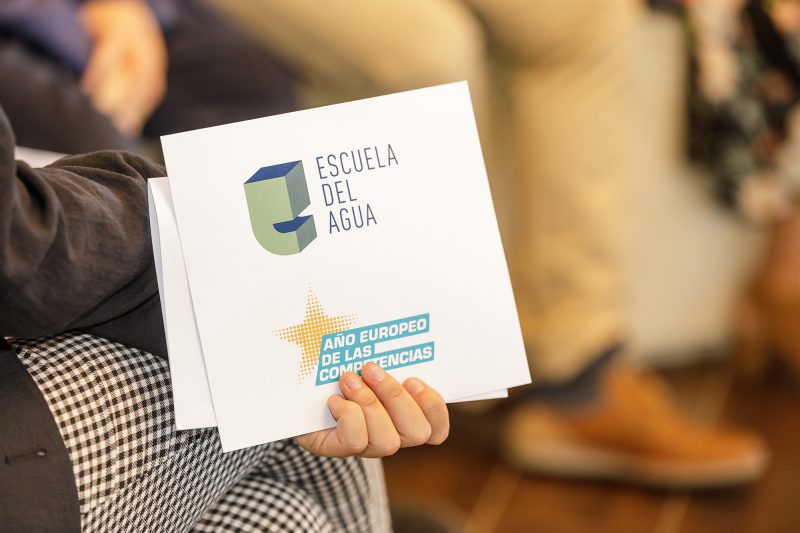
The teaching team of the Online Postgraduate Course in Drinking Water Supply is formed by UPC faculty and Agbar's specialist professionals..
To facilitate success in the learning process from start to finish:
Doctorate in Civil Engineering.
Professor of the Department of Civil and Environmental Engineering of the Polytechnic University of Catalonia (UPC).
High Commissioner for Agbar's 2030 Social Agenda.
Co-director of the Master in Water Technology and Management.
Degree in Economics and Business Administration from the University of Alicante (1982-87). She has also taken courses in Senior Business Management (CADE) at Fundesem (Alicante), Management Skills Improvement (PADI) at the Instituto de Empresa in Madrid, and Senior Management Program (SMP).
A unique technical and management training experience
The methodology and support resources are designed to facilitate autonomous, flexible and practice-oriented learning.
The innovative didactic treatment of the materials is based on the resolution of CHALLENGES based on the real professional challenges that you will have to face during your professional life.
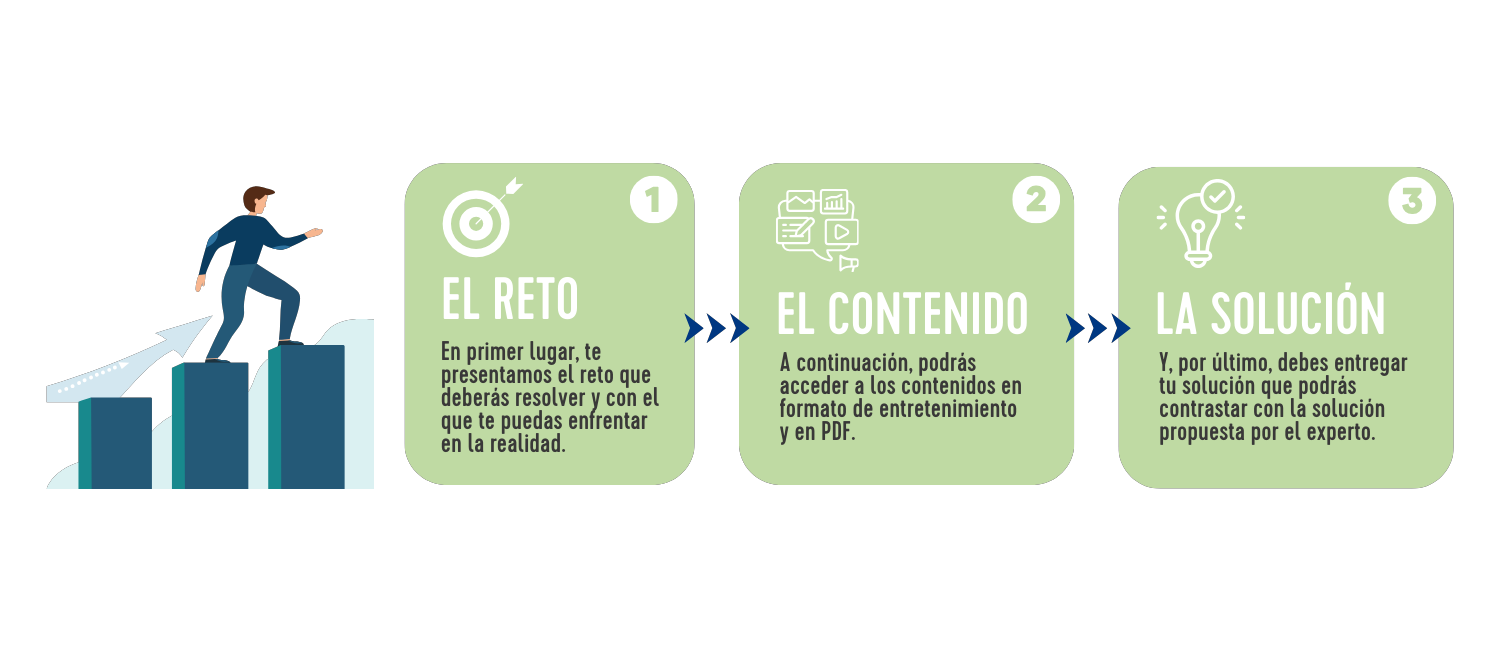
First we present you with the challenge that you will have to solve and with which you can face in reality; then you can access the transmedia content to find your solution; finally, you must deliver your solution that you can contrast with the solution proposed by the expert.
You will also have the support of a dynamic community of peers, a faculty of experts, and your academic tutor who will accompany you from the beginning.
Challenges and other content are presented through different transmedia formats:
Minireportajes, interviews, contests, news, last minute...
Reports in audiovisual format and resources that complement the content in a didactic way.
Knowledge in a journalistic, entertaining and dynamic language.
Annotations, tips, reviews highlighting what really applies in the professional world.
If you are interested in the program, we invite you to enter the training environment of the Water School.
You will receive the access codes and you will be able to see first-hand what the environment is like, samples of the innovative teaching materials and contact your academic advisor who will guide you and answer any questions you may have.
There are possibilities to pay the tuition in installments, as well as agreements with financial institutions that offer special conditions to students.
If you belong to any of these groups, identify yourself when formalizing your registration so that the corresponding reduction can be applied.
The Water School makes available to professionals two study grants that will cover the 50% of the registration fee for the Master in Water Technology and Management, valued at €7,200.
Download the program bases here to be able to consult all the required information and present your candidacy for admisiones@laescueladelagua.com, indicating in the subject of the message "PRESENTATION OF CANDIDACY FOR EXCELLENCE PROGRAM"
The period to submit the candidacy is starts on December 28, 2023 and ends the February 21, 2024.
We promote the training levels of professionals in the water sector and therefore offer an additional bonus of 10% in the tuition fee for any of the programs in the online itinerary of the School of Water.
This discount is open to all those who can prove nationality and residence in Peru, Colombia, Chile, Mexico or Ecuador.
HOW TO PROCEED? At the time of registration, in the section "Do you have any assistance" choose the option "10% of subsidized group" and send us a digital copy of your passport and certificate of census registration or other document proving your habitual residence.
If you meet any of the following conditions, we offer you a discount on the registration fee:
If you are unemployed, you have a 20% bonus on the total amount of the program.
You must present the Status Certificate issued by the SEPE (INEM).
If you are registered as self-employed, you have a 15% bonus on the total amount of the program.
You must present the last 3 receipts of the self-employed quota.
If you are a member of a large family you have a bonus of 5% total amount of the program.
If you belong to any of these groups, identify yourself at the time of registration so that the 15% discount reduction can be applied to you (not cumulative).
October 2024
6 months - 450 hours
18 ECTS
Spanish
2.650€
Online
Those who successfully complete the program and meet the necessary academic requirements will obtain the Online Postgraduate Degree in Drinking Water Supply, a degree accredited by the Polytechnic University of Catalonia (UPC).
To obtain the postgraduate degree, it is necessary to have an official university degree or a university degree equivalent to a degree, diploma or bachelor's degree. Otherwise, you will obtain a certificate of completion issued by the Polytechnic University of Catalonia (UPC). If you have any doubts about whether your degree is correct, please contact the admissions department.
Are you an individual? Click here
Are you a company? Contact us to find out about the bonuses for volume of subscribers.